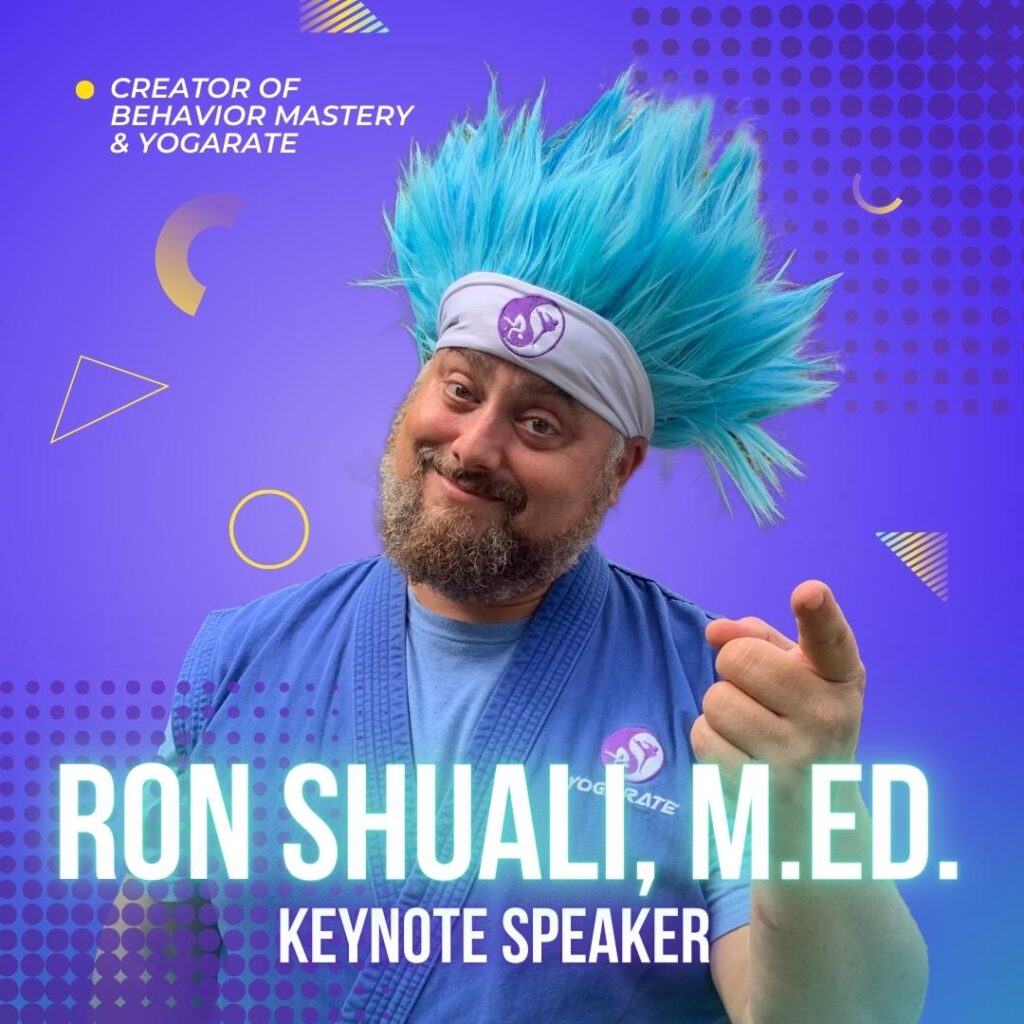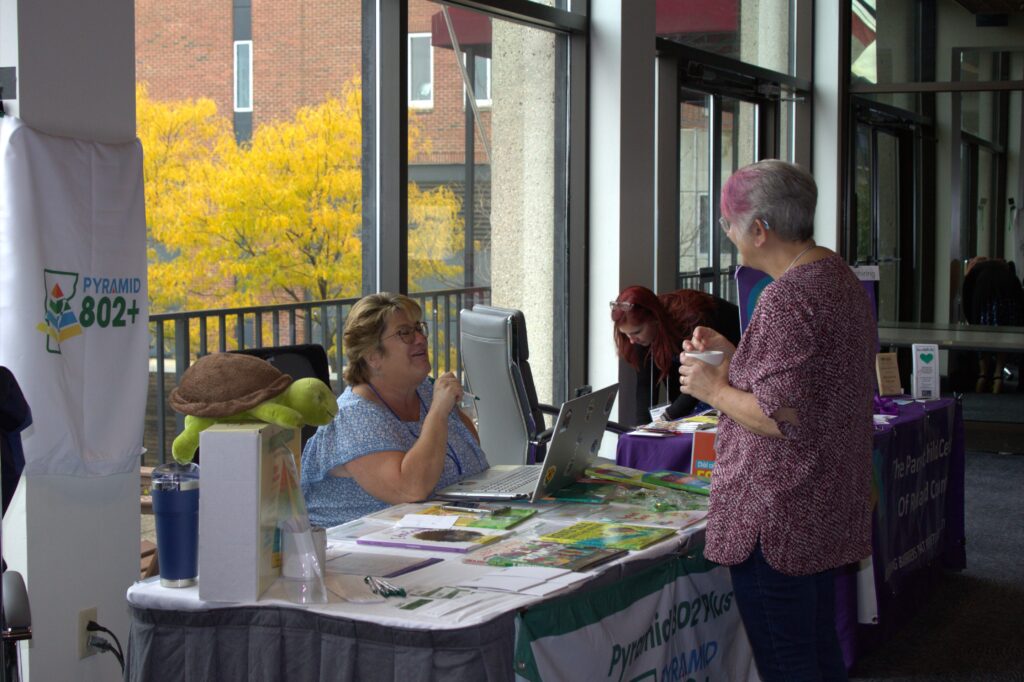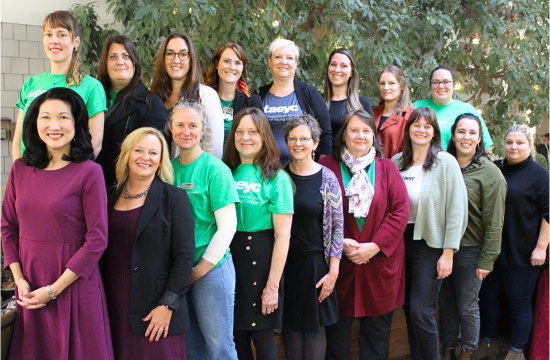VTAEYC Annual Conference
Pathways to Wellness:
Nurturing Play and Leadership
October 28 + 29, 2024
Killington, Vermont
About The Event
The Vermont Association for the Education of Young Children (VTAEYC), will host more than 350 professionals from the early childhood education profession in Killington, Vermont, for the 2024 Early Childhood Education Annual Conference.
This event offers over 35 workshops across six breakout sessions, two keynote presentations, and a variety of networking opportunities that give participants the opportunity to engage in new learning and connect with resources, peers, and community partners.
This year’s conference will focus on embedding wellness for children and their caregivers in our practices. We are all born creative, curious, and hungry to explore the world around us. The question is how to keep those qualities alive and flourishing as an adult so that we can show up for children and families in both play and leadership.

Personal
Wellness
Learning through
Play and Nature
Health
& Safety
Leadership
& Advocacy
Venue
Killington Grant Resort Hotel & Conference Center
228 East Mountain Road, Killington, VT 05751
Killington Resort is a four-season destination sitting on 3,000 acres in the heart of Central Vermont’s Green Mountains.
Today our guests can enjoy a decades-long tradition of Vermont hospitality that encompasses 120 upscale guestrooms and suites, family-friendly townhouses, a 50,000 sq. ft. nationally acclaimed spa and fitness center, dining venues and state-of-the-art conference facilities.

Request for Proposals
We appreciate your interest in submitting a proposal for our 2024 VTAEYC Annual Conference. This event would not be possible without the commitment from our partners who take time to support the professional development needs of Vermont’s early childhood educators.
VTAEYC strives to include the voices of a diverse group of presenters with their unique perspectives and approaches to supporting young children. We welcome presenters of different nationalities and varying levels of experience representing individuals, institutions, and/or organizations from around Vermont and beyond to submit a proposal.
Event Schedule
3:00-5:00 PM – Early Registration
5:00-6:00 PM – Member Mix and Mingle
8:00-9:00 AM – Registration & Breakfast
9:00-10:30 AM – Morning Plenary
9:00-10:30 AM – Break
11:00-12:30 PM – Workshop Block 1
12:30-1:45 PM – Lunch
1:45-3:15 PM – Workshop Block 2
3:15-3:45 PM – Break
3:45-5:15 PM – Workshop Block 3
7:30-8:30 AM – Registration, Breakfast, & Annual Meeting
8:30-10:00 AM – Morning Plenary
10:00-10:30 AM – Break
10:30-12:00 PM – Workshop Block 1
12:00-12:45 PM – Lunch
12:45-1:30 PM – Awards Ceremony
1:30-1:45 PM – Break
1:45-3:15 PM – Workshop Block 2
3:15-3:30 PM – Break
3:30-5:00 PM – Workshop Block 3
Loading...
Selecting your Workshop Sessions
If you have purchased a ticket for the Annual Conference, you will need to RSVP for the Plenary on the day(s) you’ll be attending and the individual workshop sessions you wish to select. Workshop sessions are first come, first served, but waitlists for each session are available.
Selecting your workshop sessions:
- Go to Day of Conference app/webpage.
- You will need to create unique login details by clicking “Don’t have an account? Sign up here“.
- They will use their email address that was entered at the time of registration.
- Click on Agenda in the left-hand menu.
- If you will be arriving Sunday night and want to meet our exhibitors early, click the RSVP button found on the right-hand side of Member Mix and Mingle
- Next select Mon, Nov 6 or Tue Nov 7 to get started on selecting your sessions to be added to “My Agenda”.
- Click the RSVP button found on the right-hand side of the Morning Plenary if you are planning on attending this session.
- Scroll down to Workshop Block 1 and click View Session.
- Click the RSVP button found on the right-hand side for the session you would like to attend in this workshop block.
- Click the back button to return to the full agenda. Repeat step 4 & 5 for Workshop Block 2 & 3.
- If you are attending for both days of the Conference, you will repeat steps 3-6 on the second day.
- You have the optional choice of adding the other events (breaks, lunch) found in the full agenda to your “My Agenda” section to see everything you’ll be doing at the conference in one place.
You can find a pdf version of these instruction with screenshots by viewing: Selecting Your Workshop Sessions. If you need additional assistance or have any other questions, please email conference@vtaeyc.org.
Keynote Speakers
Day 1 Keynote Presenter
Ron Shuali, M.Ed.
Ron Shuali, M.Ed. has been called the “Messiah of the Mind”, the “Behavior Master” and the “Bad Boy of Early Childhood. His laughter filled keynotes, workshops and assemblies are always full of eye-opening experiences as audiences have multiple “Ah-HA!” moments. He is the creator of the internationally acclaimed Yogarate and Behavior Mastery systems. Ron holds a Master’s of Education specializing in Early Childhood, is a best-selling author, motivational speaker, and most importantly…He is funny. His background of martial arts, yoga, reiki, professional wrestling and improv creates hilarious and educational experiences focusing on mindfulness and connecting with fellow humans and their inner-child.


Day 2 Keynote Presenter
Ant Toombs
Anthony (Ant) Toombs Sr. is the Senior Playmaker Guide and Outreach Specialist for The Life is Good Playmaker Project (LiGPP). Throughout his 15 years with LiGPP, Ant has partnered with thousands of Early Childhood professionals to help create more safe, loving and joyful environments for kids to engage, connect, and explore. Ant, along with the entire LiGPP team believes that when children grow to see the good in themselves, the good in others and the good in their world – their social, emotional, and cognitive superpowers emerge.
Today, Ant inspires audiences with true stories of how optimism can be harnessed to overcome adversity, and how ANYONE can cultivate a more optimistic disposition to insulate against toxic stress, connect more easily, and experience more joy.
Sponsors and Exhibitors

Sponsors
This keystone event is the largest gathering of early childhood educators in the state and consistently sells-out. This event offers high quality professional development for Vermont’s early childhood educators and is only possible with the generous support from our conference sponsors and donors. Your support will help over 350 early childhood educators, family advocates, and program leaders come together to learn and network.

Exhibitors
We want to showcase the vital businesses and organizations that are building assets and finding solutions within the early childhood community by inviting you to purchase an Exhibitor table. You will have the opportunity to market your services, products, or resources with over 300 ECE professionals across two days. Exhibitor tables are limited and reserved on a first-come, first-serve basis.
Loading...
Loading...
Past Annual Conferences
VTAEYC has been hosting our Annual Conference for over 50 years. You can view our previous Annual Conference Brochures and detailed information from each year by clicking the buttons below.




